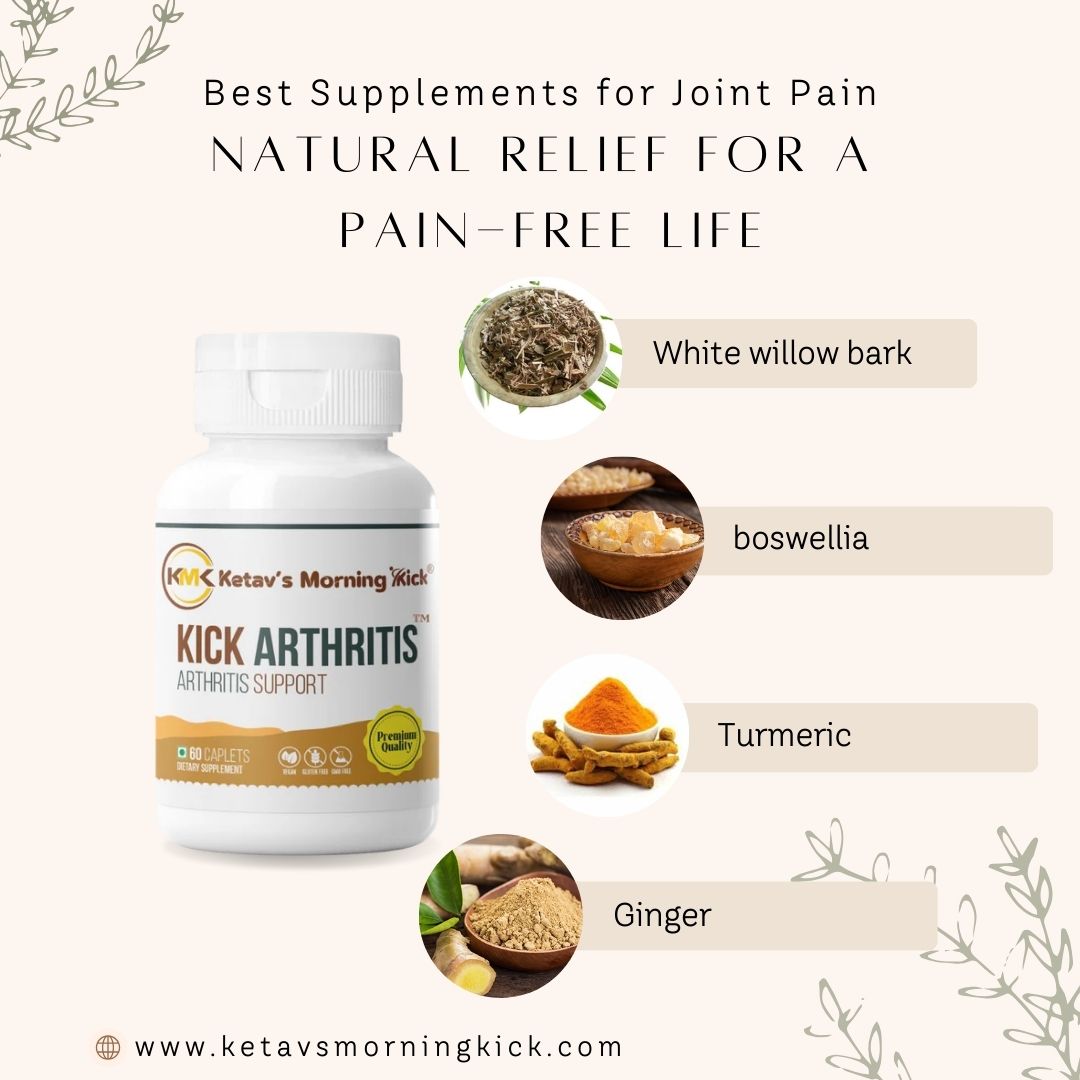Joint pain can be a debilitating condition, affecting millions of people worldwide. Whether it's due to arthritis, ageing, or injury, finding effective relief is essential for maintaining a high quality of life. While there are numerous treatments available, supplements have gained popularity as a natural and often safer alternative to traditional medications. In this blog, we'll explore some of the best supplements for joint pain, their benefits, and how they can help you lead a more comfortable and active life.
1. Glucosamine
Glucosamine is one of the most well-known supplements for joint pain, particularly osteoarthritis. It is a natural compound found in cartilage, the tissue that cushions joints. Glucosamine supplements are believed to help repair damaged cartilage, reduce inflammation, and alleviate pain. Several studies have shown that glucosamine can improve joint function and decrease symptoms of osteoarthritis, making it a popular choice for those seeking joint pain relief.
2. Chondroitin Sulfate
Often used in combination with glucosamine, chondroitin sulfate is another crucial component of cartilage. It helps retain water in the cartilage, keeping it elastic and healthy. Chondroitin is thought to reduce pain and inflammation, improve joint function, and slow the progression of osteoarthritis. The combination of glucosamine and chondroitin has been shown to provide significant relief for many individuals suffering from joint pain.
3. Omega-3 Fatty Acids
Omega-3 fatty acids, commonly found in fish oil, are known for their anti-inflammatory properties. They can help reduce joint pain and stiffness, particularly in individuals with rheumatoid arthritis. Omega-3s work by decreasing the production of inflammatory chemicals in the body. Incorporating fish oil supplements or increasing your intake of fatty fish like salmon, mackerel, and sardines can provide these beneficial effects.
4. Turmeric (Curcumin)
Turmeric, a spice commonly used in Indian cuisine, contains curcumin, a powerful anti-inflammatory and antioxidant compound. Curcumin has been shown to reduce inflammation and pain in various types of arthritis, including osteoarthritis and rheumatoid arthritis. Taking turmeric supplements or adding turmeric to your diet can help manage joint pain and improve overall joint health.
5. Boswellia Serrata
Boswellia serrata, also known as Indian frankincense, has been used for centuries in traditional medicine to treat inflammatory conditions. Boswellic acids, the active components in Boswellia, have been shown to reduce inflammation and pain in the joints. Some studies suggest that Boswellia may be as effective as non-steroidal anti-inflammatory drugs (NSAIDs) in reducing joint pain, without the associated side effects.
6. Collagen
Collagen is a protein that is essential for the health and integrity of cartilage, tendons, and ligaments. As we age, collagen production decreases, leading to joint pain and stiffness. Collagen supplements can help replenish the body's collagen levels, improve joint health, and reduce pain. Hydrolyzed collagen, which is easier for the body to absorb, is particularly beneficial for joint pain relief.
7. MSM (Methylsulfonylmethane)
MSM is a sulfur-containing compound that has anti-inflammatory and pain-relieving properties. It is often used in combination with glucosamine and chondroitin to enhance their effects. MSM can help reduce inflammation, improve joint mobility, and decrease pain in individuals with osteoarthritis and other joint conditions.
Conclusion
Joint pain can significantly impact your daily life, but incorporating the right supplements can provide natural and effective relief. Glucosamine, chondroitin sulfate, omega-3 fatty acids, turmeric, Boswellia serrata, collagen, and MSM are among the best supplements for joint pain. Before starting any supplement regimen, it's essential to consult with a healthcare professional to ensure it's safe and appropriate for your specific condition. With the right approach, you can manage joint pain and enjoy a more active and pain-free life.

